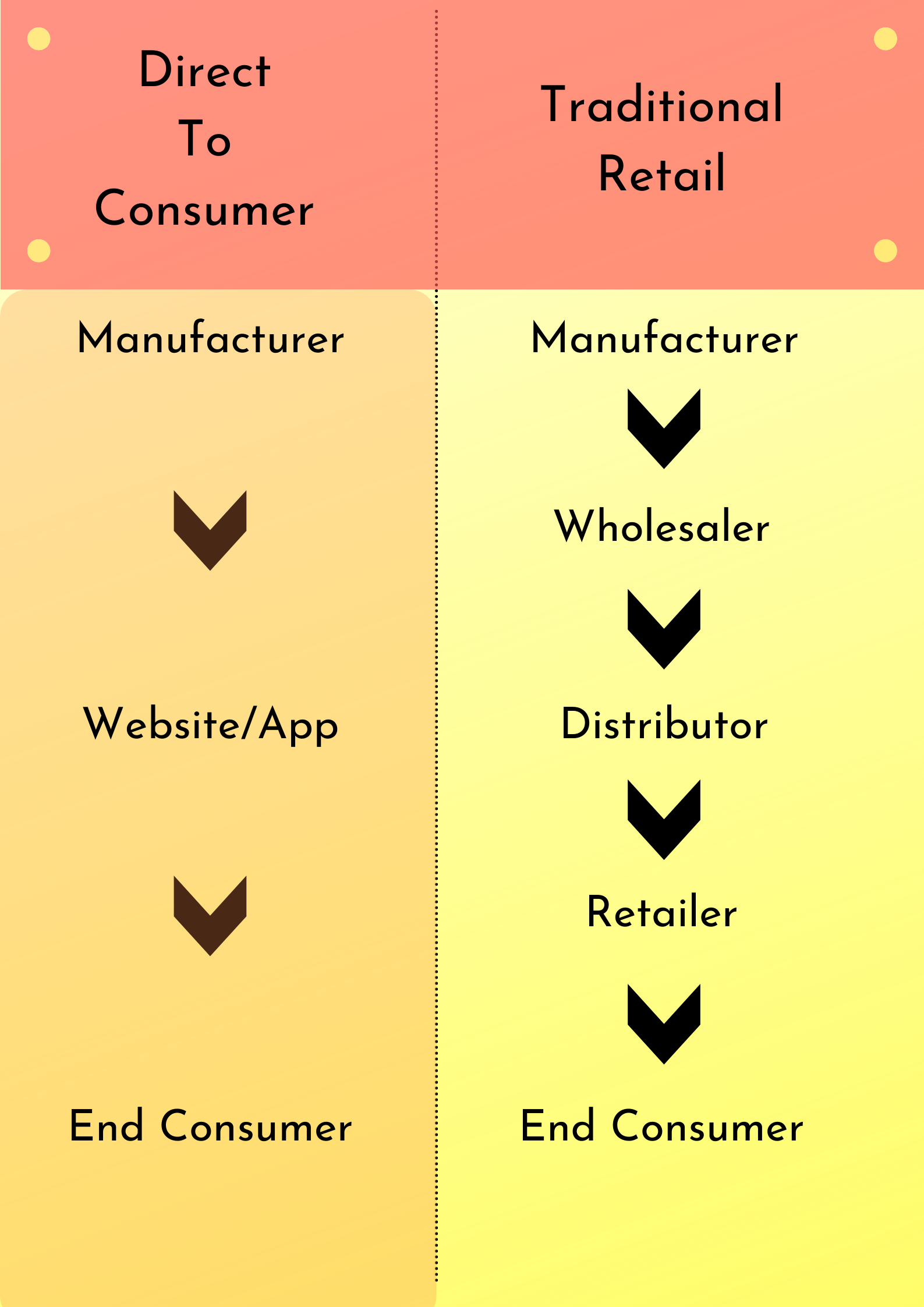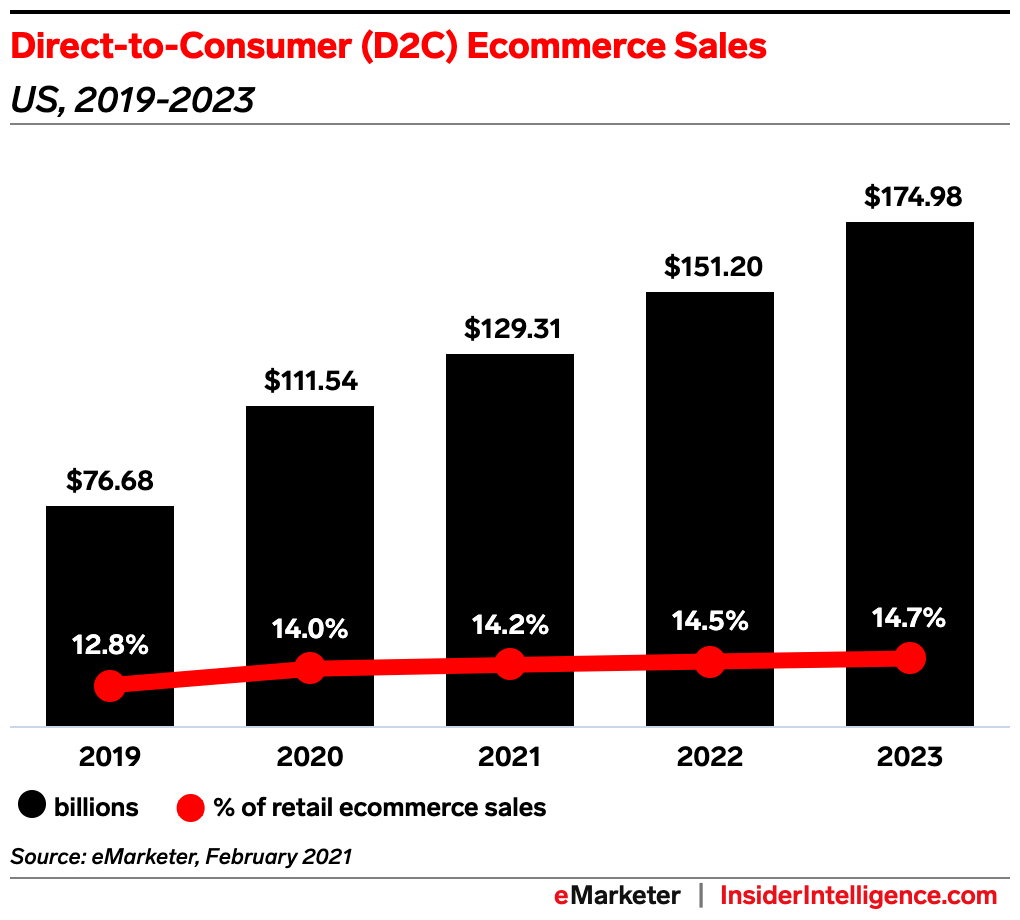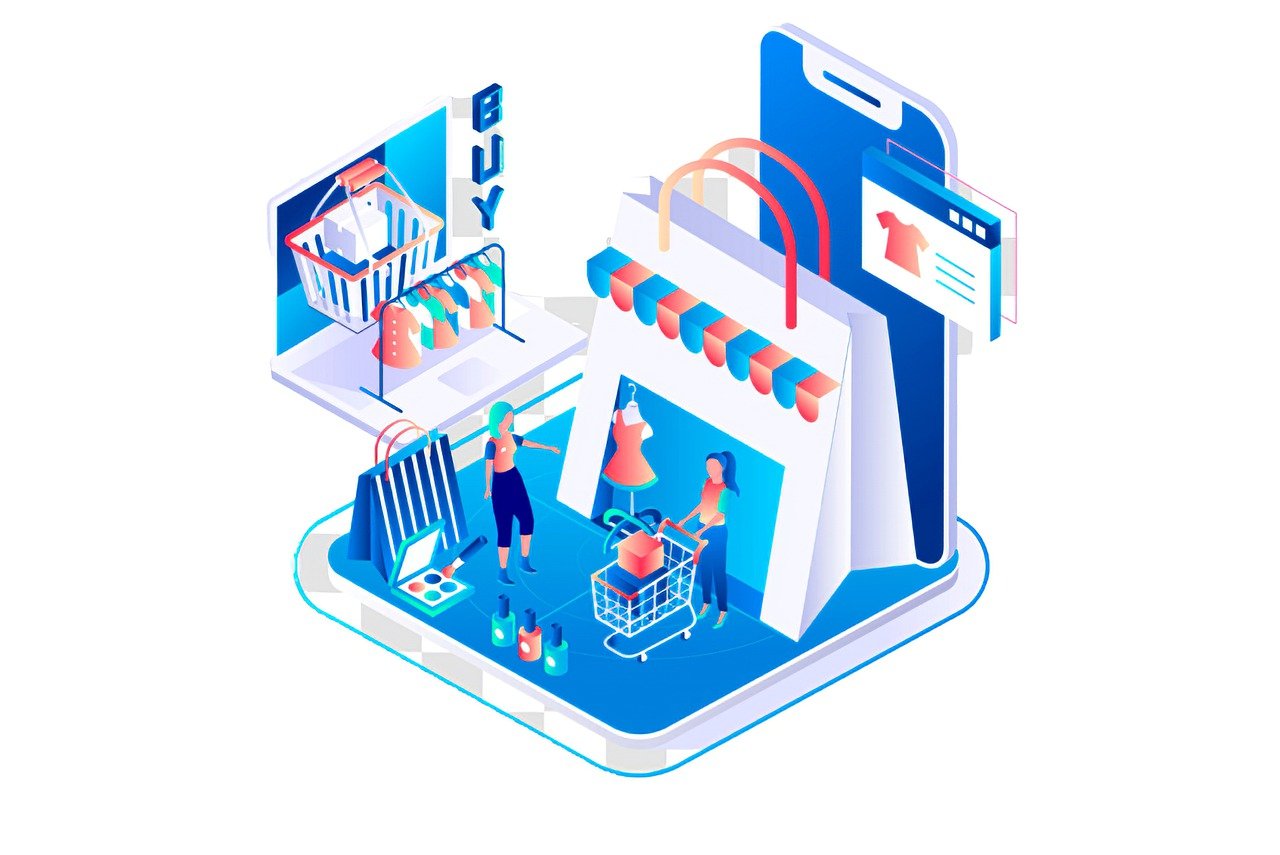
Direct to Consumer (aka DTC or D2C) is a fast growing business model with 19.2% increase in number of DTC brands in 2021. Direct to Consumer selling is becoming a crucial branch of e-commerce with retail sales of $180.5bn across the globe. These impressively whooping numbers have motivated businesses of every size ranging from settled brands like Nike to emerging startups to enter the DTC market.
If you are also planning to add direct to consumer selling as a new ecommerce channel to your business, then you are at the right page. Here, we will answer some important questions to help you in getting started with D2C. Some questions that we are addressing are:
- What Is Direct To Consumer Model?
- Why Direct To Consumer Selling Is Beneficial For You?
- Why DTC Ecommerce Is The Future Of Online Retail?
- How You Should Get Started & Succeed With Direct To Consumer Selling?
Let’s get started-
What Is Direct To Consumer Business Model?
Direct to Consumer selling is a bypass route between the manufacturer and the consumer. DTC business model can be further explained as an ecommerce model where the manufacturer of a product or a consumer packaged goods brand decides to sell directly to the end consumer without involving any middleman such as a retailer or wholesaler.
Under Direct to Consumer business model, the manufacturer lists his products on an online Direct to Consumer ordering platform (personal DTC marketplace website, D2C ecommerce app or social media) to reach out to the end consumers of the products. The consumers can view and order the products from the DTC ordering platform. On receiving the orders, the manufacturer/business delivers the products to the customer.

Direct to Consumer Model vs Traditional Retail Model
Why Direct To Consumer Selling Is Beneficial For You?
DTC Ecommerce is becoming popular owing to deep rooted benefits it offers to the business owners. As a business owner, D2C enables you to sell quality products at a competitive price giving you an edge over your competitors.
Here are six convincing reasons why you should start selling Direct to Consumers (DTC):
- Higher Revenue: A major part of the customer base of any business is made up of consumers who have either had a great experience with the brand in the past and go to a store to buy it’s product or customers who buy the products because they have a personal liking for the brand. Such customers create a great demand market for the brand, so adding a DTC selling channel to fulfill this demand is a logical move. Direct to Consumer selling will have a positive impact on the revenue and profits of the business by confiscating the commissions paid for the purchase otherwise.
- Strengthen Brand-Customer Relationship For Repetitive Sales: Strong brand-customer relationship plays an important role in creating returning customers. DTC selling facilitates a direct relationship between your business and the consumers allowing you to understand your target audience in a better way including the reason behind purchase, expectations, and product experience. A research indicates that 2/3 customers appreciate direct connectivity with a brand. DTC brands are also at a better foothold when it comes to managing post-sale customer experience for ensuring repetitive sales.
- Control Over Brand Image: Every business or brand is built around a story and message which might not be conveyed successfully by retail stores in case of traditional retail. The retail stores may also fail to provide effective customer data to the brands. On the contrary, Direct to Consumer business model puts the control in hands of the brands enabling them to tell their story and create positive brand image. Since D2C brands own the customer data they collect, they can use this data to address negative feedback.
- Better Market Positioning & Pricing For Higher Sales: In Direct to Consumer model, brands have deeper insight into marketing funnels and buying journey of customers. This allows DTC brands to understand the market positioning and pricing opportunities in a better way. Creating an effective positioning and pricing strategy allows direct to consumer brands to fill in the existing market gaps and attract higher sales.
- Cost Optimization To Lower Average Cost Per Sale: Direct to Consumer selling eliminates the middleman allowing DTC brands to save up the retailer margin. This lowers the cost of delivering the product to the consumer for every purchase made by the customer. This profit can instead be used by the D2C brands to provide attractive discounts and improve product quality which further translate into higher sales.
- Overcome Retail Barriers: DTC Ecommerce allows brands to reach their customers irrespective of geographical or other retail barriers. For example, popular brand Skechers experienced an impressive 137.8 percent growth in sales owing to direct to consumer selling during COVID-19.
Why DTC Ecommerce Is The Future Of Online Retail?
Undoubtedly, the direct to consumer trend was gaining popularity before 2019, the onset of COVID-19 and stay home restrictions it imposed on the consumers has fueled the growth of direct to consumers selling market.
A report published by Insider Intelligence indicates that D2C ecommerce sales of both native and established DTC brands increased by 45.5% in 2020 in US only. D2C sales were calculated at $111.54 billion that made up 14.0% of total retail ecommerce sales. DTC ecommerce seems to have a promising future as the report indicates a steady growth every year and forecasts revenue generation of impressive $174.98 billion by DTC ecommerce in 2023.

Direct to Consumers Sales Growth Trend
The future of D2C brands is expected to be marked with growth as the buying behavior of customers has inclined towards online buying. Although eCommerce was gaining popularity before 2019, but stay home restrictions during COVID-19 have fueled up the direct buying behavior, owing to which even well settled brands made efforts to add a D2C channel to their sales funnel.
How You Should Get Started & Succeed With Direct To Consumer Selling?

Direct to Consumer selling is more targeted focused on consumers rather than mass marketing of products to a wide audience. Whether you are an established bricks and mortar business or a startup, if you are planning to adopt Direct to Consumers business model, you need to establish an online presence for your brand and then focus on spreading brand awareness.
Here is a comprehensive guide to help you start your DTC selling business:
- Know Your DTC Brand Voice: The foremost and most important step when starting your D2C selling business is to find out what your brand stands for, what kind of audience you want to target for D2C selling, what would be your brand message, and what would be your brand style guide for DTC. In case you have an established offline brand, keep in mind that your DTC branding voice should be similar to your offline brand so that existing consumers can relate to your DTC brand.
- Create Your DTC Ecommerce app: When considering direct to consumers selling, it is imperative to provide a platform to your consumers where they can view and order your products. You can either choose from ready-to-use DTC ordering platform templates or customized Direct to Consumers selling platforms offered by technology solutions companies such as Code Brew Labs. When designing a D2C eCommerce website or D2C eCommerce app like Mamaearth, Glossier, or Casper, make sure to include following features in your direct to consumers selling platform:
- Product Ordering Platform: The ordering platform of your Direct to Consumers website or app should offer the option to list unlimited number of products with filter search options to make it easier for your customers to search and order products from your D2C ecommerce app.
- Admin Dashboard: The D2C website should have a feature loaded admin dashboard that includes tools to assist in user management, vendor management, agent tracking and push notifications for easy management of your direct to consumer selling business.
- Analytics: Real time analytical tracking of parameters such as orders, user registrations and session time of each user on your D2C ecommerce app.
- Delivery Platform: An intuitive delivery platform improves the performance of your D2C ecommerce platform by optimizing delivery time for your orders. This improves customer experience resulting in recurring sales for your DTC Brand.
- Live Chat Support: Integrating live chat feature in your D2C ecommerce app helps in building credibility among users by solving their product or delivery related queries in real time.
- Scalability: D2C ecommerce app should allow scale up as your DTC brand grows for uninterrupted sales.
- Screen Adaptability: Make sure that your D2C ecommerce app adapts to different screen sizes and resolutions for example mobile, desktop, laptop, and tablet.
- Market Your DTC Brand: Building your D2C ecommerce app is the final step towards getting started and now is the time to succeed at direct to consumer selling. To ensure the success of your DTC brand, formulate an efficient marketing strategy for your DTC brand. You can include three marketing verticals in your D2C marketing campaign;
- Paid Search
- Social Media Marketing
- Email Campaigns
For details on how to market your DTC brand, read our blog on top ecommerce marketing strategies.
This is all you need to know about direct to consumer business model and getting started with D2C selling. The cost of starting a D2C selling platform depends upon a number of factors such as features you choose, customization, and region you choose. However, a cost effective solution to building D2C ecommerce app is to opt for fully customizable and feature loaded ready-to-start solutions from Code Brew Labs. Years of standing experience in building on-demand apps for different industries equips us to offer right D2C solution for helping your DTC brand succeed.
Do you need an exact quote for your direct to consumer selling app? Or do you want to know about the features that are included in D2C selling platform? We are here to answer your questions and offer a power packed D2C solution for your DTC brand. Let’s connect now!




